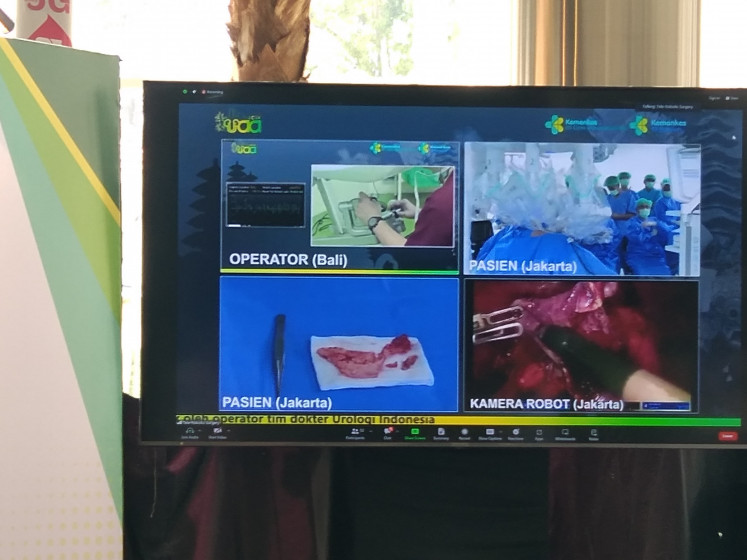Popular Reads
Top Results
Can't find what you're looking for?
View all search resultsPopular Reads
Top Results
Can't find what you're looking for?
View all search resultsRI regrets another Saudi execution
The head of the Agency for the Placement and Protection of Indonesian Migrant Workers (BNP2TKI), Nusron Wahid, said he very much regretted the Saudi Arabian governmentâs failure to notify Indonesian representatives before executing migrant worker Karni binti Medi Tarsim on Thursday morning local time
Change text size
Gift Premium Articles
to Anyone

T
he head of the Agency for the Placement and Protection of Indonesian Migrant Workers (BNP2TKI), Nusron Wahid, said he very much regretted the Saudi Arabian government's failure to notify Indonesian representatives before executing migrant worker Karni binti Medi Tarsim on Thursday morning local time.
'There is no formal rule saying that if a foreigner is going to be executed, the government of his or her country of origin must be informed beforehand; but proper etiquette requires us to do so,' he said in a statement made available to The Jakarta Post on Thursday.
Nusron said the government provided a considerable amount of support to Indonesian nationals abroad by, among other things, providing government-paid lawyers and making relentless efforts to file appeals in every legal case affecting them.
Following the disclosure of Karni's execution, Nusron visited the ill-fated migrant worker's family in Brebes, Central Java, on Thursday. BNP2TKI mediation and advocacy director Teguh Hendro Cahyono and the Foreign Ministry's director for legal aid and protection of Indonesian nationals overseas, Mohammad Iqbal, accompanied Nusron on his visit.
The ministry's spokesman Arrmanatha Nasir said separately that following the latest execution, it had summoned the Saudi Arabian ambassador to hand over a diplomatic note elaborating on Indonesia's disappointment about the abrupt execution of Karni and the lack of any notification.
'What we are most disappointed about is the fact that we were not notified about the time and place of [Karni's] execution,' he said.
Arrmanatha said the Indonesian government was fully aware that according to Saudi Arabian law, there was no requirement for its government to notify the government of another country whose citizen would be executed.
In Indonesia, he said, the government was legally required to notify the government of any country whose citizen would be executed, and the notification must be provided to both the government and the death row convict's family at least three days before the execution occurred.
'We fully respect laws in Saudi Arabia just like we want other countries to respect us; however, we are very regretful of the Saudi Arabian government's attitude which could not apply the common practice of countries around the world, including Indonesia, to provide notification about the exact time and place of an execution to the government of a convict's country of origin,' said Arrmanatha.
He said the government was striving to assist the families of the recently executed Indonesian migrant workers to travel to Saudi Arabia.
In 2013, a Saudi Arabian court sentenced Karni to death for allegedly killing her employer's four-year-old child in 2012.
Karni's execution came only two days after another Indonesian migrant worker, Siti Zaenab, was beheaded in Medina on Tuesday. In 2001, a local court sentenced Siti to death for murdering her female employer in 1999. (ebf)(+++)









